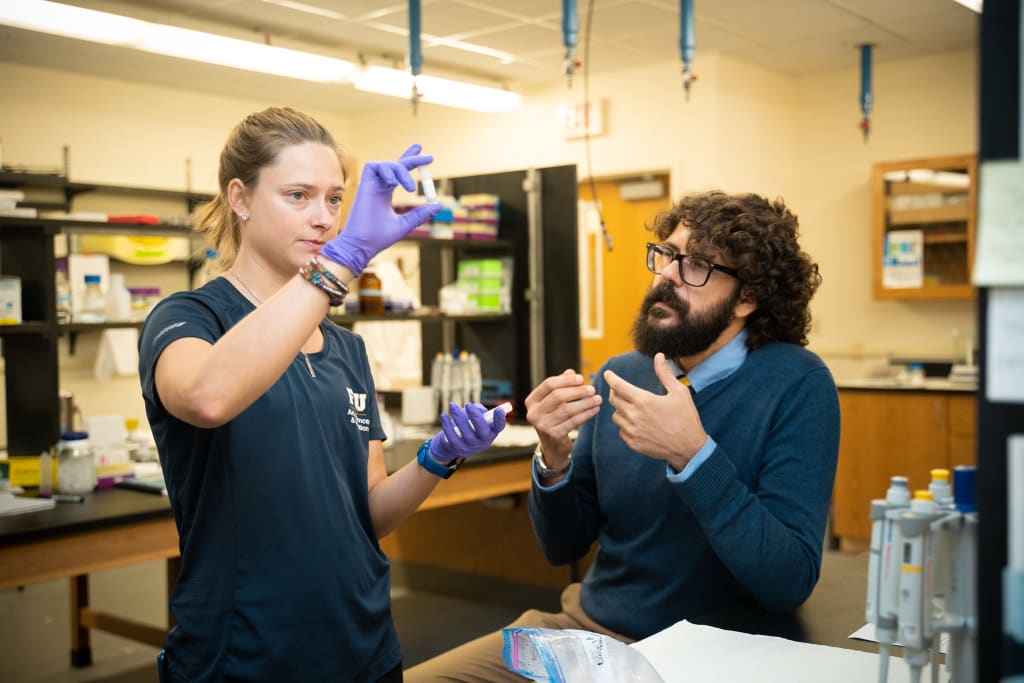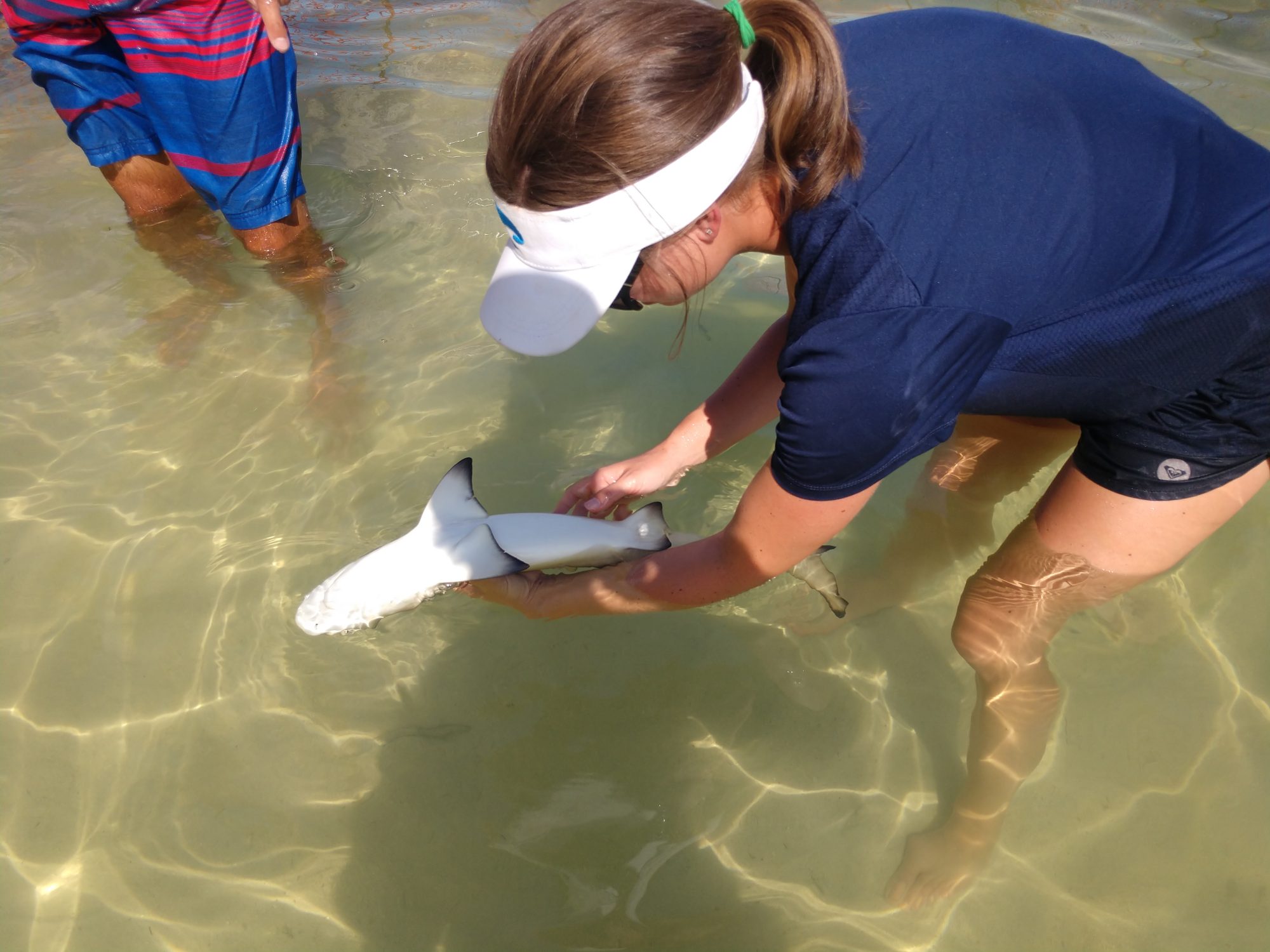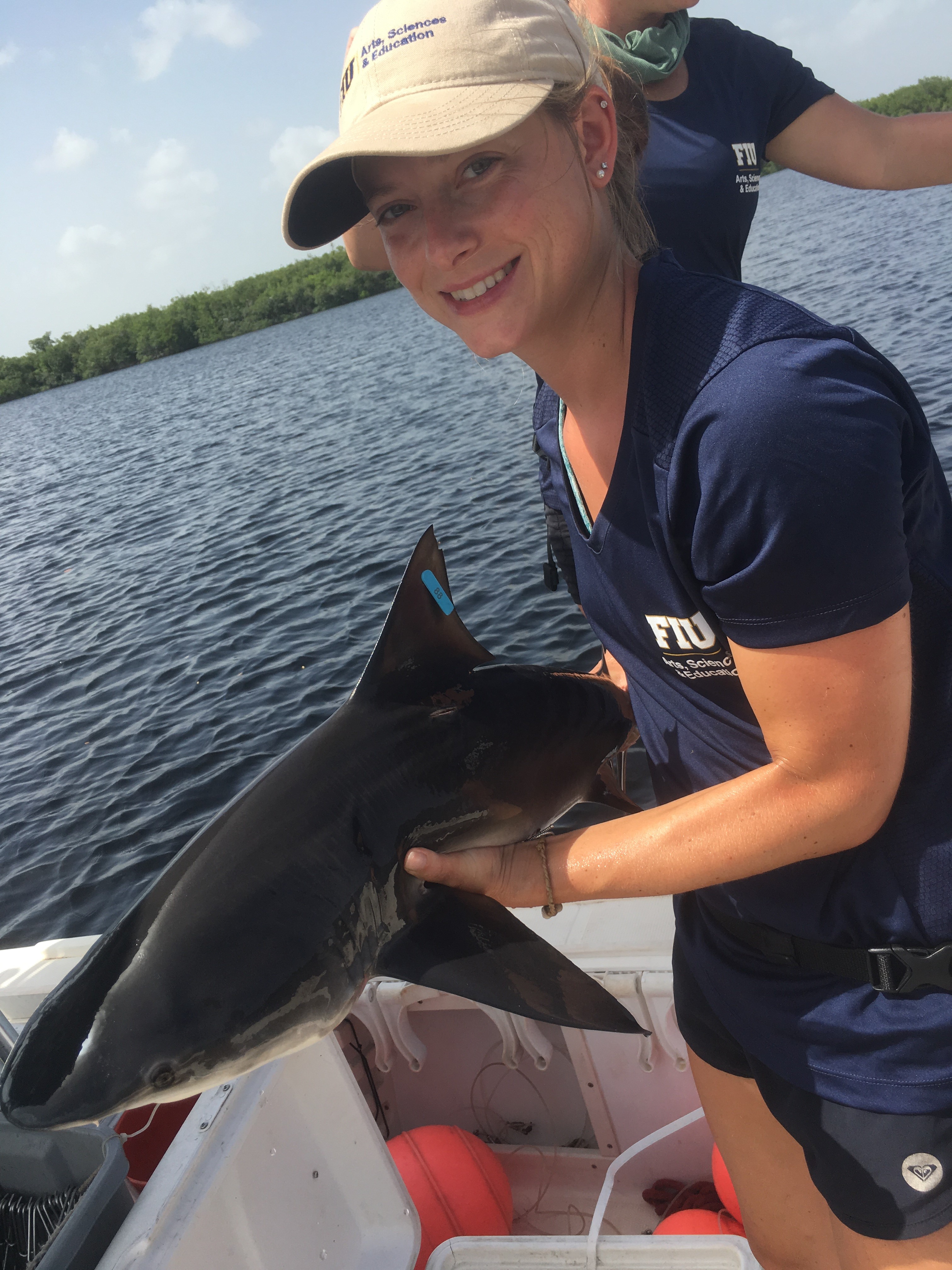As marine life is continuously impacted by the rapid effects of climate change, more scientists are researching innovative management strategies to restore marine organisms and habitats. But in order to analyze and understand how species are affected by different environmental stressors, simple parameters such as age, are necessary indicators for research advancement.
The Bottlenose dolphins found in tropical waters such as the Florida coast are often exposed to environmental and anthropogenic stressors. Studies of the population’s ecology and health are widely done yet estimating the age of a dolphin is quite complex. Knowing the age of organisms can lead to a better understanding of their responses to environmental stressors, but until recently, invasive sampling had to be done to estimate the age of a dolphin.
Andria Beal, a graduate fellow with the NSF CREST Center for Aquatic Chemistry and Environment at Florida International University, and research mentor, Dr. Jose Erin-Lopez, have recently developed a molecular age estimation tool. The “Bottlenose dolphin Epigenetic Age estimation Tool” (BEAT) offers scientists an accurate way to estimate the age of dolphins through a small skin sample.


Now, Beal is expanding her research to other marine animals. She is looking at differences in these epigenetic marks in juvenile lemon sharks in correlation to a major dredging event that occurred in Bimini, Bahamas.
The NSF CREST Center for Aquatic Chemistry and Environment is housed within the Institute of Environment, a Preeminent Program at Florida International University.
